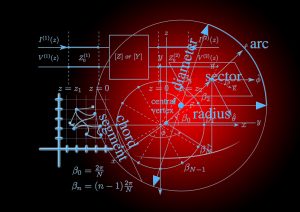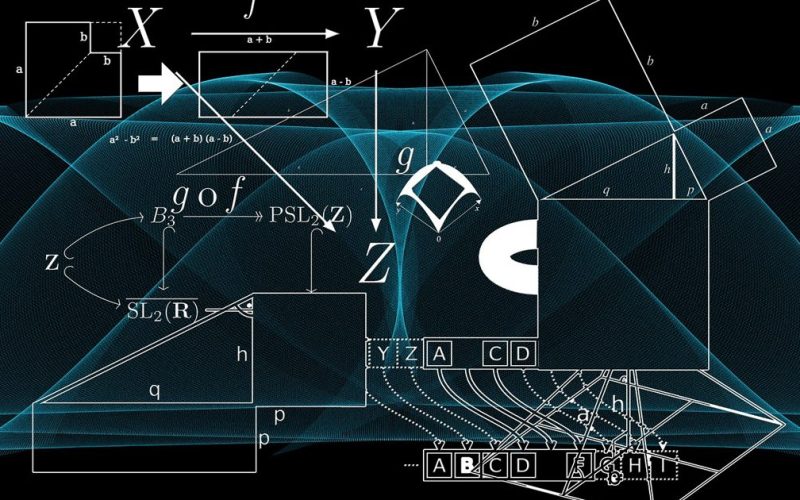The mathematical physics group is concerned with problems in statistical mechanics, atomic and molecular physics, quantum field theory, and, in general, with the mathematical foundations of theoretical physics. This includes such subjects as quantum mechanics (both nonrelativistic and relativistic), atomic and molecular physics, disorder effects in condensed matter, the existence and properties of the phases of model ferromagnets, the stability of matter, the theory of symmetry and symmetry breaking in quantum field theory (both in general and in concrete models), and mathematical developments in functional analysis, algebra and modern probability theory, to which such subjects lead.
Mathematical physics serves as the language through which scientists unravel the intricate mysteries of the universe. By integrating mathematical tools with the principles of physics, researchers gain deeper insights into the fundamental laws governing everything from subatomic particles to cosmic phenomena. This article delves into the rich tapestry of mathematical physics, exploring its historical evolution, pivotal concepts, diverse applications, and promising future.
Historical Development
The roots of mathematical physics can be traced back to antiquity, where early civilizations laid the groundwork for understanding natural phenomena through rudimentary mathematical concepts. However, it was during the Renaissance and the Scientific Revolution that significant strides were made in formalizing the discipline. Visionaries like Galileo Galilei and Isaac Newton pioneered the application of mathematics to describe the motion of objects and the behavior of celestial bodies, laying the foundation for modern physics.
Key Concepts in Mathematical Physics
At the heart of mathematical physics lie powerful mathematical tools such as calculus, differential equations, and probability theory. These tools provide the framework for modeling physical systems, predicting their behavior, and uncovering hidden patterns in the fabric of reality. Whether it’s analyzing the trajectory of a projectile or simulating the behavior of subatomic particles, mathematical physics offers a versatile toolkit for scientists to explore the mysteries of the cosmos.
Astrophysics
In the field of astrophysics, mathematical physics plays a crucial role in unraveling the secrets of the universe. From elucidating the dynamics of celestial mechanics to modeling gravitational interactions on cosmic scales, mathematical tools enable scientists to make sense of the vast complexities of the cosmos. Whether it’s predicting the motion of planets or understanding the formation of galaxies, mathematical physics provides the analytical framework for exploring the depths of space.
Role in Quantum Mechanics

Quantum mechanics, the branch of physics that describes the behavior of particles at the smallest scales, relies heavily on mathematical formalism for its formulation. Central to quantum theory are mathematical constructs such as the Schrödinger equation, matrix mechanics, and quantum field theory. These mathematical frameworks allow physicists to compute probabilities, calculate wave functions, and predict the outcomes of quantum experiments with unprecedented accuracy.
Contributions to Relativity
In the realm of relativity, mathematical physics has revolutionized our understanding of space, time, and gravity. Einstein’s field equations, which form the cornerstone of general relativity, describe how matter and energy warp the fabric of space-time. Through sophisticated mathematical techniques, physicists can explore the properties of black holes, study the curvature of space-time, and investigate the origins of the universe itself.
Emerging Fields and Future Directions
As technology advances and new frontiers in physics emerge, mathematical physics continues to evolve and expand into exciting new areas of research. From string theory and multiverse mathematics to quantum computing and information theory, the boundaries of mathematical physics are continually being pushed to new limits. These emerging fields hold the promise of unlocking profound insights into the nature of reality and reshaping our understanding of the cosmos.
Challenges and Controversies
Despite its immense potential, mathematical physics also faces significant challenges and controversies. Theoretical limitations, interpretational debates, and ethical considerations pose formidable obstacles to progress in the field. From addressing bias and discrimination to navigating the complexities of interdisciplinary research, mathematical physicists must grapple with a host of ethical and philosophical issues as they push the boundaries of human knowledge.
Beyond the realm of pure theoretical physics, mathematical techniques find applications in a wide range of interdisciplinary fields. From biophysics and econophysics to climate modeling and environmental science, mathematical physics provides valuable insights into complex systems across diverse domains. By fostering collaboration between different disciplines, mathematical physicists can tackle some of the most pressing challenges facing humanity today.
Educational Implications

The teaching of mathematical physics plays a crucial role in shaping the next generation of scientists and innovators. By integrating mathematical concepts with physical principles from an early age, educators can instill a deeper appreciation for the beauty and elegance of the universe. Moreover, by emphasizing the importance of cross-disciplinary learning and hands-on experimentation, educators can inspire students to pursue careers in STEM fields and contribute to the advancement of human knowledge.
Influence on Technology
The impact of mathematical physics extends far beyond the realm of academia, shaping the development of technology and engineering in profound ways. From the design of spacecraft and satellites to the optimization of complex algorithms, mathematical tools play a pivotal role in driving innovation and progress in the modern world. Whether it’s simulating the behavior of materials or optimizing the performance of electronic devices, mathematical physics provides the foundation for countless technological advancements that shape our lives.
Global Collaborations and Research Networks
In an increasingly interconnected world, collaboration and cooperation are essential for advancing scientific knowledge and tackling global challenges. International efforts in mathematical physics bring together researchers from diverse backgrounds and cultures to share data, exchange ideas, and collaborate on groundbreaking research projects. By building bridges across borders and fostering a spirit of cooperation, mathematical physicists can work together to address some of the most pressing issues facing humanity.
Ethical Considerations
As stewards of knowledge and guardians of truth, mathematical physicists must adhere to the highest standards of ethical conduct in their research and professional practice. This includes ensuring the integrity of their data, addressing bias and discrimination, and upholding principles of academic integrity and open access. By promoting transparency, accountability, and inclusivity in their work, mathematical physicists can uphold the values of scientific inquiry and contribute to the advancement of human understanding.
The Future of Mathematical Physics
Looking ahead, the future of mathematical physics is filled with promise and potential. As researchers continue to push the boundaries of human knowledge, new discoveries and breakthroughs await on the horizon. Whether it’s unraveling the mysteries of dark matter and dark energy or exploring the nature of consciousness and the universe, physics will continue to serve as the blueprint for understanding the cosmos and our place within it.
Conclusion
In conclusion, mathematical physics stands as a testament to the power of human intellect and imagination in unraveling the mysteries of the cosmos. From ancient civilizations to modern researchers, mathematicians and physicists have forged a path of discovery guided by curiosity, ingenuity, and perseverance. As we look to the future, the journey of exploration continues, fueled by the timeless quest for understanding and the boundless possibilities of physics.










